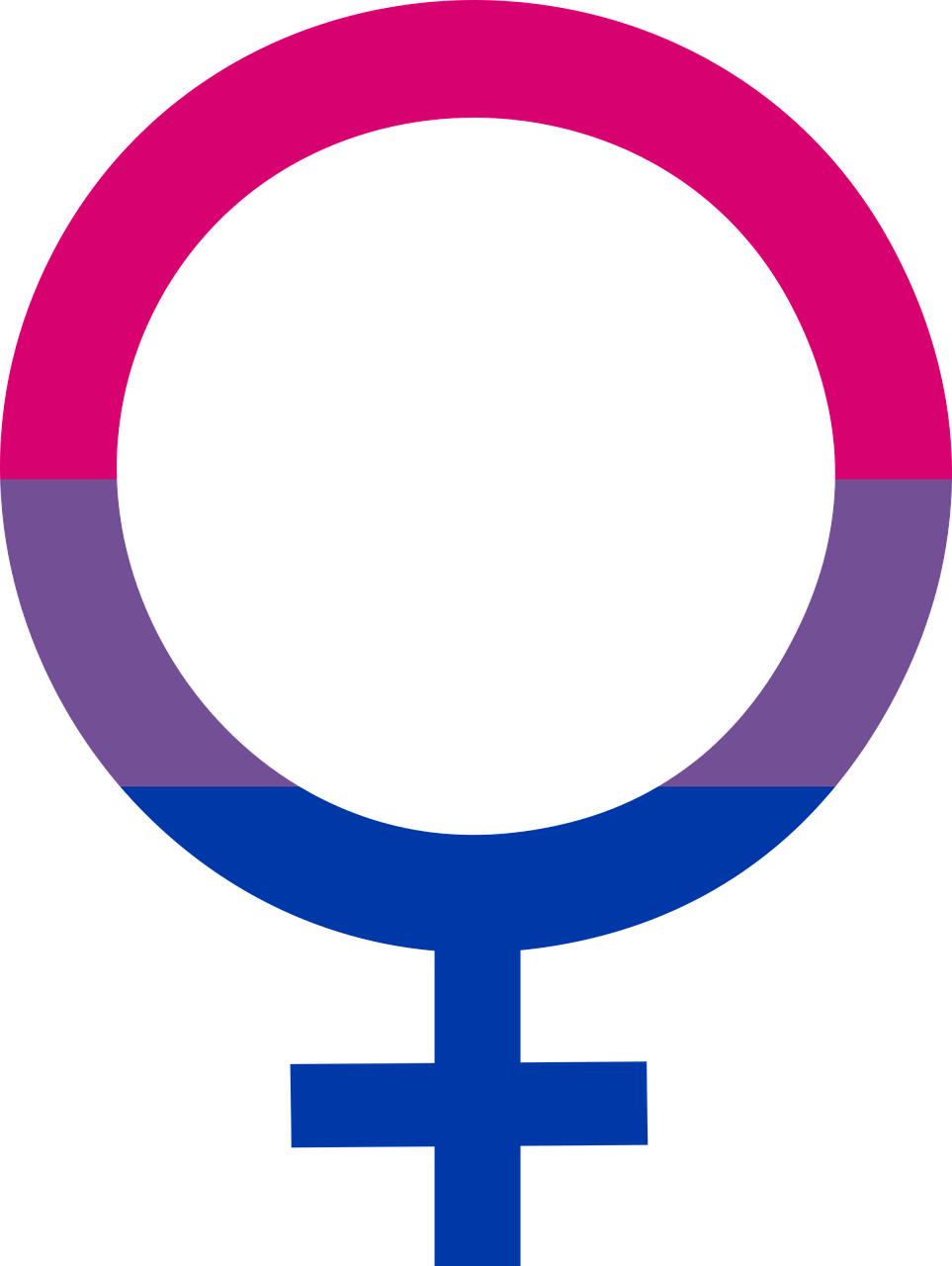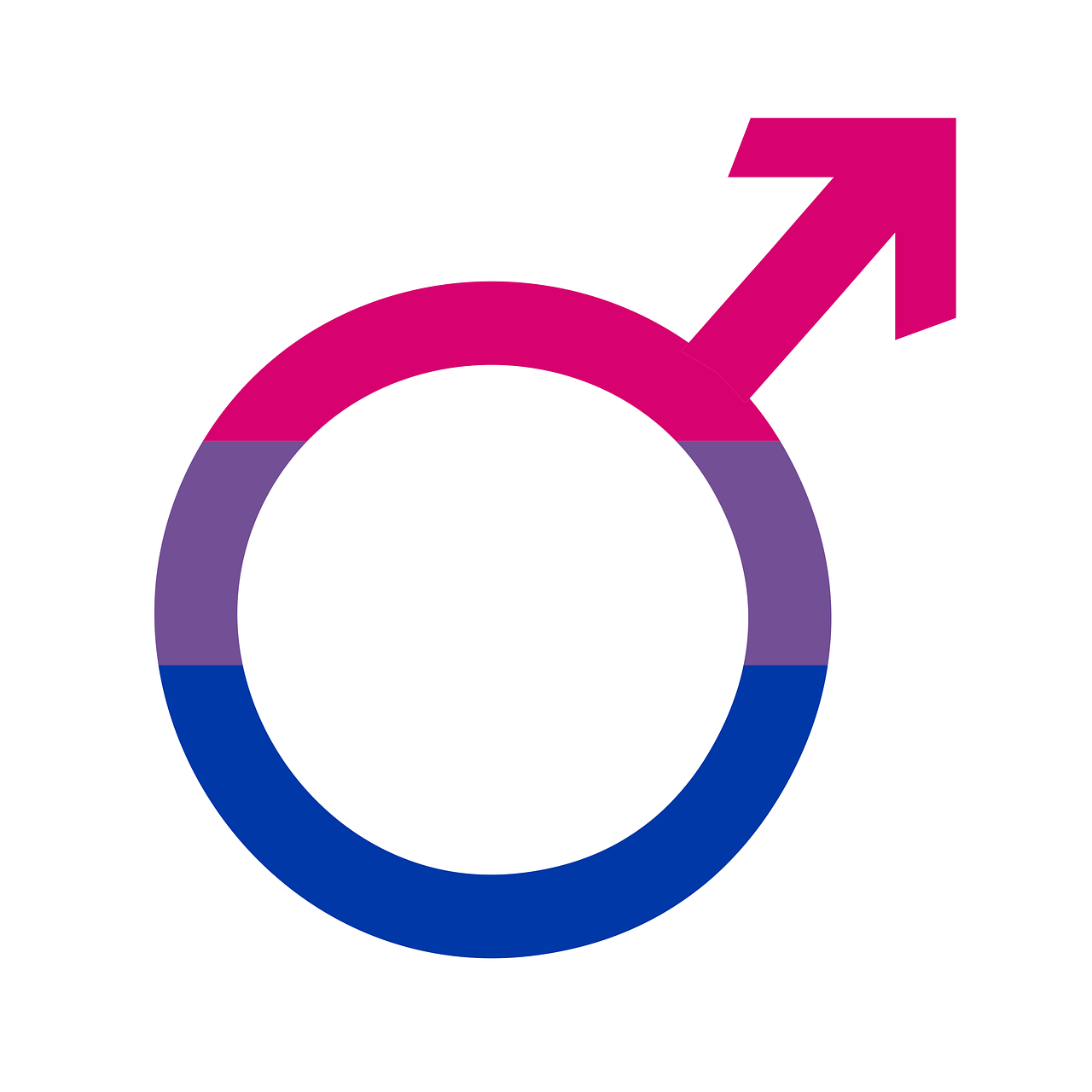
Are you questioning your sexual orientation? It’s perfectly normal to wonder and explore your own identity. In this article, we’ll discuss some common signs and experiences that may indicate you are gay or lesbian. Remember, there’s no rush to have all the answers right away, and self-discovery is a personal journey. So, let’s explore together and provide some guidance on how to navigate these thoughts and feelings.
Understanding Sexual Orientation
Definition of sexual orientation
Sexual orientation refers to a person’s enduring pattern of emotional, romantic, and/or sexual attractions to individuals of the same or a different gender. It is an integral part of who we are and is not something that can be changed or chosen. Sexual orientation exists on a spectrum, with heterosexuality (attraction to the opposite gender) being one end and homosexuality (attraction to the same gender) being the other.
Variety of sexual orientations
There are various sexual orientations that exist beyond the binary of heterosexual and homosexual. Some individuals identify as bisexual, experiencing attractions to both men and women. Others may identify as pansexual, attracted to people regardless of their gender identity. There are also individuals who identify as asexual, experiencing little to no sexual attraction. It’s crucial to remember that everyone’s experience of sexual orientation is unique and valid.
Importance of self-discovery
Self-discovery plays a vital role in understanding one’s sexual orientation. It’s an ongoing process of exploring and reflecting on your feelings, attractions, and connections. It requires honesty, self-reflection, and open-mindedness. By taking the time to understand your own desires and emotions, you can attain a greater sense of self-awareness and acceptance.
Common questions about sexual orientation
When questioning your sexual orientation, it is common to have a multitude of questions. You may wonder if your feelings are valid, if they will change over time, or if societal expectations influence your understanding of your sexual orientation. Remember that there are no right or wrong answers, and it’s normal to have uncertainties. It’s important to seek support and information to help navigate your journey of self-discovery.
Exploring Personal Feelings
Recognizing attractions
One of the first steps in exploring sexual orientation is recognizing your attractions. Take the time to observe who you are drawn to emotionally, romantically, and sexually. Pay attention to your thoughts and feelings when you interact with different individuals. Ask yourself if you feel a deep connection or attraction towards someone of the same or different gender.
Examining emotional connections
In addition to attractions, examining emotional connections can provide insight into your sexual orientation. Reflect on your past and current relationships, both romantic and platonic. Consider the intensity and depth of emotional connections you have experienced with individuals of different genders. This examination can help you uncover patterns and understand your own preferences and desires.
Fantasies and sexual desires
Understanding your fantasies and sexual desires can be another way to explore your sexual orientation. Honest self-reflection can reveal patterns in your fantasies and help you identify themes or preferences. While fantasies and desires are personal and can evolve over time, they can contribute to a greater understanding of your sexual orientation.
Differentiating between friendship and romantic interest
It’s important to differentiate between feelings of friendship and romantic interest when exploring sexual orientation. Sometimes close friendships can be mistaken for romantic attraction, and vice versa. Pay attention to the presence of romantic or sexual desires in your relationships, as well as the level of emotional intimacy you seek. This distinction can help clarify your sexual orientation and guide your exploration.

Reflecting on Past Experiences
Analyzing childhood and adolescent experiences
Reflecting on your childhood and adolescent experiences can provide valuable insights into your sexual orientation. Consider your early attractions, crushes, or friendships and think about any patterns that emerge. Reflecting on these experiences can help you trace the roots of your sexual orientation and uncover any biases or external influences that may have affected your understanding of it.
Social interactions and relationships
The way you have interacted with others and formed relationships throughout your life can also shed light on your sexual orientation. Think about the identities and genders of individuals you have been in relationships with or felt attracted to. Consider the depth and quality of these relationships, as well as any societal pressures or expectations that may have influenced them.
Media influence and role models
The media we consume and the role models we look up to can play a significant role in shaping our understanding of sexual orientation. Reflect on the representation of different sexual orientations in the media you have consumed and consider how that may have influenced your own perceptions. Recognize that it is essential to seek diverse and inclusive media representation to foster a more accurate understanding of sexual orientation.
Impact of society’s expectations
Society’s expectations and norms can have a profound impact on how we perceive and understand our sexual orientation. Reflect on any societal pressures or expectations you have encountered regarding relationships, marriage, and family. Recognize that societal norms may not align with your own sexual orientation, and it’s crucial to prioritize your own authentic self-expression and happiness.
Understanding Gender Identity
Difference between sexual orientation and gender identity
It’s important to differentiate between sexual orientation and gender identity. Sexual orientation refers to who you are attracted to, while gender identity is about how you personally identify your own gender. Sexual orientation is about who you want to be with, and gender identity is about who you are.
Exploring personal gender identity
Understanding your own gender identity can be an integral part of exploring your sexual orientation. Take the time to reflect on how you identify yourself. Consider how you feel comfortable expressing yourself and the gender roles you align with. It’s essential to create a safe space for self-exploration and seek support from trusted individuals or LGBTQ+ organizations if you have questions or need guidance.
Effects of gender dysphoria
Gender dysphoria is a term used to describe the distress or discomfort that can arise when an individual’s gender identity does not match their assigned sex at birth. If you are experiencing feelings of discomfort or incongruence between your gender identity and assigned sex, it’s important to seek support and guidance from qualified professionals. Understanding and addressing gender dysphoria can be a crucial step in understanding your sexual orientation.
Considering transgender or non-binary identity
Exploring your sexual orientation may also involve considering your own gender identity. It’s essential to recognize that not everyone identifies as strictly male or female. Some individuals identify as transgender or non-binary, meaning their gender identity does not exclusively align with the binary categories of male or female. All gender identities are valid, and it’s important to support and respect individuals who identify outside of the gender binary.

Finding Support and Community
Importance of support networks
Building and maintaining a strong support network is crucial when exploring your sexual orientation. Surrounding yourself with supportive and accepting individuals can provide a safe space to discuss your thoughts and emotions. Seek out friends, family, or LGBTQ+ organizations that can offer guidance, understanding, and resources to help you navigate your journey.
LGBTQ+ organizations and resources
There are numerous LGBTQ+ organizations and resources available for individuals exploring their sexual orientation. These organizations provide safe spaces, support groups, and educational materials to help individuals understand and embrace their identities. They can connect you with others who have similar experiences and provide information on local LGBTQ+ events, counseling options, and legal resources.
Counseling and therapy options
Counseling and therapy can be invaluable resources when navigating questions about sexual orientation. LGBTQ+ affirming therapists and counselors can provide guidance, support, and a non-judgmental space for self-exploration. They can help you process your feelings, address any internalized negativity or shame, and develop coping strategies for any challenges you may encounter.
Online communities and forums
Online communities and forums can provide a sense of belonging and connection on your journey of self-discovery. These spaces allow individuals to share their experiences and seek advice from others who may have gone through similar situations. However, it’s important to remember that online spaces can vary in quality and safety, so exercise caution and ensure you are engaging in supportive and respectful communities.
Examining Sexual Fluidity
Understanding sexual fluidity
Sexual fluidity refers to the idea that an individual’s sexual orientation may change or evolve over time. It acknowledges that attractions and desires can vary throughout one’s life. Some individuals may experience a shift in their sexual orientation, while others may consistently identify as one orientation. It’s essential to embrace the concept of sexual fluidity and allow yourself to grow and discover your own unique journey.
Exploring changes in attractions over time
As you explore your sexual orientation, you may experience changes in your attractions over time. Pay attention to any shifts in your feelings and reflect on what may have influenced these changes. Personal growth, new experiences, and increased self-awareness can all contribute to the development or evolution of your sexual orientation.
Acknowledging societal attitudes towards fluidity
While sexual fluidity is a natural part of human sexuality, societal attitudes and expectations can sometimes create challenges or confusion. Society often expects individuals to fit into fixed categories or labels, which may not align with the fluid nature of sexual orientation. It’s important to recognize that your experiences and feelings are valid, regardless of societal expectations.
Embracing personal journey and growth
Embracing your personal journey and growth is a fundamental aspect of understanding your sexual orientation. Allow yourself the freedom to explore and evolve without judgment or pressure. Value your own experiences and feelings, even if they do not fit neatly into societal norms or expectations. Remember that self-acceptance and growth is a lifelong process.

Coming Out and Self-Acceptance
Importance of self-acceptance
Self-acceptance is a crucial step in understanding and embracing your sexual orientation. It involves acknowledging and embracing your own feelings, desires, and identity. Self-acceptance allows you to live authentically and fosters a positive relationship with yourself, as well as with others in your life. Seek support from trusted individuals, LGBTQ+ organizations, or therapists to navigate this process.
Coming out to trusted individuals
Coming out is a personal decision and should only be done when you feel ready and safe to do so. It involves sharing your sexual orientation with trusted individuals in your life. Choose individuals who you believe will be supportive and understanding. Coming out can bring a sense of relief, but it’s important to remember that not everyone may react positively. Be prepared for a range of reactions and remember to prioritize your own well-being.
Considerations for safety and support
Your safety and well-being should always be prioritized when coming out. Consider your living situation, financial stability, and the potential consequences before disclosing your sexual orientation. If you are concerned for your safety or worried about negative reactions, it may be helpful to seek guidance from LGBTQ+ organizations or professionals experienced in coming out support.
Navigating potential challenges and reactions
Coming out can bring about both positive and negative reactions from those around you. It’s important to be prepared for a range of responses, from acceptance and support to confusion or rejection. Remember that reactions are ultimately a reflection of the other person’s understanding and beliefs, and may not be a reflection of your worth or identity. Seek support from those who offer understanding and acceptance, and remember that your well-being is paramount.
Seeking Professional Help
Recognizing signs of distress or confusion
If you are experiencing distress or confusion regarding your sexual orientation, it may be beneficial to seek professional help. Signs of distress can include persistent feelings of confusion, depression, anxiety, or a sense of isolation. If these feelings persist or interfere with your daily life, it’s essential to reach out to a qualified mental health professional who can provide guidance and support.
Importance of seeking guidance
Navigating questions about sexual orientation can be complex, and seeking guidance from a professional can help facilitate the self-discovery process. A qualified mental health professional can provide a safe and non-judgmental space to explore your feelings, offer strategies for coping with challenges, and provide support throughout your journey.
Finding LGBTQ+-friendly professionals
Finding a mental health professional who is LGBTQ+-friendly and knowledgeable about sexual orientation is important when seeking professional help. These professionals are trained to provide affirmative support and can offer specialized insight into the challenges faced by the LGBTQ+ community. Research LGBTQ+-friendly therapists in your area or seek recommendations from LGBTQ+ organizations to find the support you need.
Therapeutic approaches and support
Various therapeutic approaches can be utilized when working through questions of sexual orientation. Cognitive-behavioral therapy (CBT), acceptance and commitment therapy (ACT), and narrative therapy are just a few examples of therapeutic approaches that can help individuals explore their sexual orientation in a supportive and affirming environment. A mental health professional can help determine the most appropriate approach for your specific needs.
Embracing Authenticity and Identity
Living authentically
Living authentically means embracing and expressing your true self, including your sexual orientation. It involves being true to who you are and living in accordance with your own desires and values. Embracing your sexual orientation can lead to a sense of freedom, fulfillment, and a deeper connection with others. Remember that your identity is unique and worthy of celebration.
Celebrating individuality
Each person’s sexual orientation and identity is unique, and it’s important to celebrate and honor individual experiences. Recognize that there is no “right” way to be LGBTQ+, and everyone’s journey is valid. By celebrating individuality, we can create a more accepting and inclusive society that uplifts and supports all members of the LGBTQ+ community.
Fostering acceptance and respect
Fostering acceptance and respect for others’ sexual orientations is vital in creating a more inclusive world. Educate yourself on LGBTQ+ issues, challenge your own biases, and actively support LGBTQ+ rights and equality. By fostering acceptance and respect, we can create a safe and welcoming environment for all individuals, regardless of sexual orientation.
Contributing to LGBTQ+ advocacy
Contributing to LGBTQ+ advocacy can help promote understanding and acceptance within society. Whether through volunteering, donating, or actively participating in advocacy efforts, your contributions can make a meaningful difference. Joining forces with LGBTQ+ organizations and supporting initiatives that promote equality and inclusivity can help create a more affirming world for all individuals.
Continued Personal Growth
Understanding personal evolution
Understanding that personal evolution is a natural part of life can contribute to ongoing personal growth. Recognize that your understanding of your sexual orientation may change over time and that new experiences can provide valuable insights. Embrace the opportunity for growth, self-reflection, and self-improvement as you continue to explore your sexual orientation.
Exploring new experiences and relationships
Continuing to explore new experiences and relationships can help deepen your understanding of your sexual orientation. Be open to new connections and allow yourself to be vulnerable in forming relationships. Each experience, whether positive or challenging, can contribute to your personal growth and understanding of your sexual orientation.
Maintaining an open mind
Maintaining an open mind is crucial as you navigate your journey of self-discovery. Understand that everyone’s experiences of sexual orientation are unique and respect the diversity within the LGBTQ+ community. Seek to challenge assumptions and actively listen to the experiences of others. An open mind fosters empathy and growth, both for yourself and those around you.
Continued self-reflection and self-care
Continued self-reflection and self-care are important aspects of personal growth. Take the time to reflect on your feelings, experiences, and progress in understanding your sexual orientation. Practice self-care strategies that promote emotional well-being and prioritize your mental health throughout your journey. Remember that self-acceptance and self-compassion are ongoing processes.




